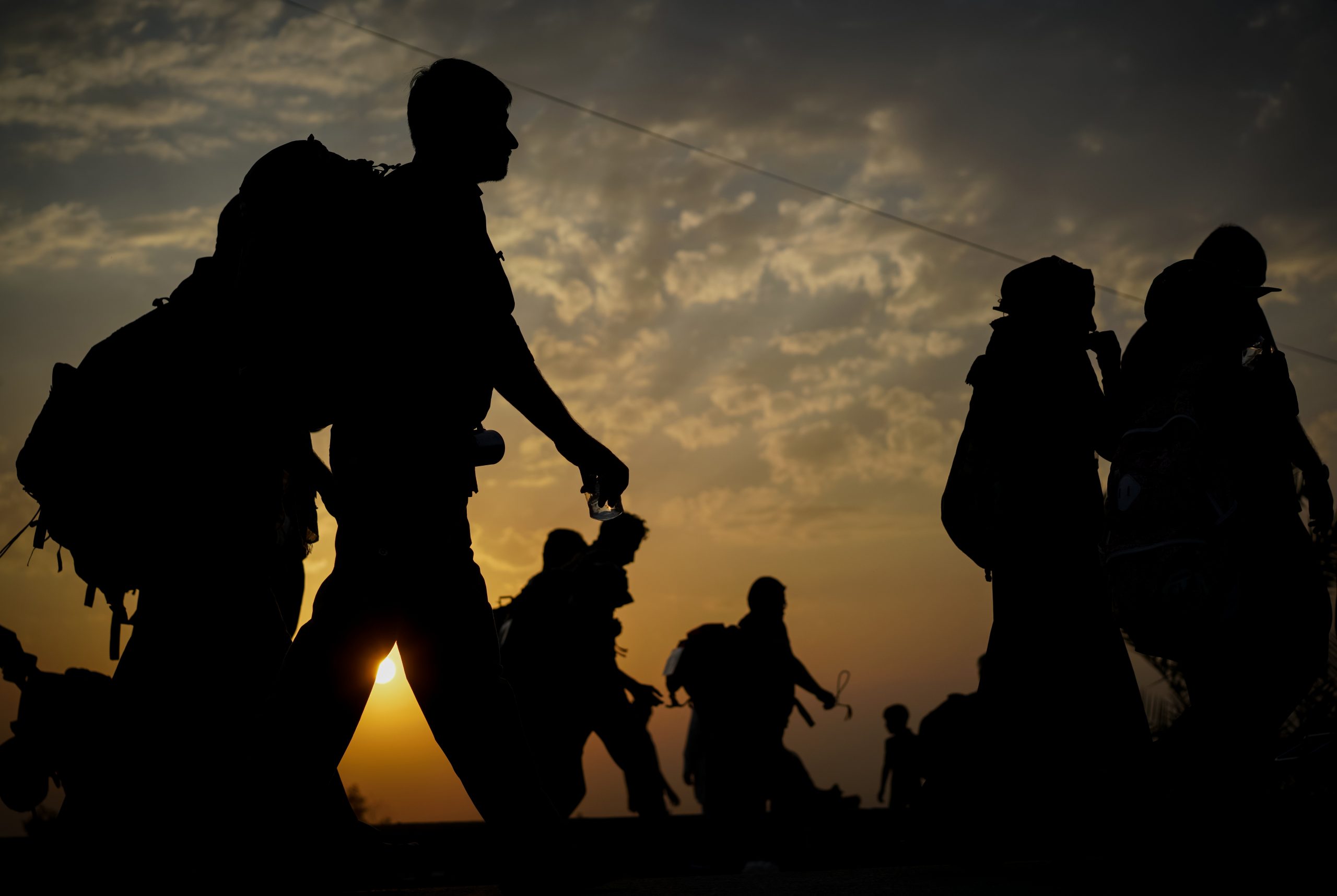‘Send Them Here!’

Such at least was the editorial position of Life magazine in September 1946 as the editors contemplated the fate of the many hundreds of thousands of displaced persons, mostly Jews and other Eastern Europeans, stuck in de facto concentration camps on the continent. More than a year earlier, the fighting had ended. War-induced suffering had not, and the flagship of Henry Luce’s journalistic empire was appalled at American callousness in the face of such large-scale human misery.
Restrictive U.S. immigration laws dating from the 1920s provided Washington a convenient excuse for limiting its response to mere tokenism. Life’s editors found particularly galling the U.S. unwillingness to admit Holocaust survivors, even as the Truman administration was chastising Great Britain for its reluctance to allow Jews to emigrate to British-controlled Palestine. Quoting the words of Emma Lazarus inscribed on the base of the Statue of Liberty—“Give me your tired, your poor, your huddled masses yearning to breathe free”—Life noted “nobody has yet got around to erasing” that text. In effect, however, Congress had rendered it inoperative.
In the decades since, U.S. immigration policy has changed radically from what it was at the end of World War II. So too, as a consequence, has this nation’s ethnic and racial composition. Yet in 2021, on both sides of the U.S. border with Mexico, the functional equivalent of D.P. camps have appeared, as wave after wave of self-displaced migrants, primarily from Guatemala, Honduras, and El Salvador, flood north to seek refuge in the United States. Rather than the after-effects of war, violence, crime, and poverty are spurring this movement. But the result does not differ appreciably from the situation that raised the ire of Life’s editors 75 years ago.
When the migrant problem was Donald Trump’s, the media denounced his administration’s response, using terms like “harsh,” “callous,” and “cruel,” and justifiably so. Whether the media critique will remain equally unsparing now that the problem is Joe Biden’s remains to be seen. But fundamentals of the problem remain unchanged: Desperate people will take great risks and undergo great hardships in hopes of finding sanctuary in the United States.
The problem is one of baffling complexity. Indeed, the allure of Trump’s promise to “build a wall” was that it promised a simple solution. Just as no such wall materialized, neither will any other easy fix.
The Biden administration is just figuring that out. Doing a fair imitation of King Canute, Homeland Security Secretary Alejandro Mayorkas has declared that “the border is closed.” As a practical matter, it’s not. In the hierarchy of factors that influence migrant decisions, the warnings of a U.S. cabinet secretary are unlikely to carry much weight.
Migrants undertake their dangerous northward journey because they believe that they will have a better shot at building a decent life in the United States than they will have at home. The underlying logic is impeccable, and no doubt mirrors the thinking of my own forebears who arrived on these shores early in the last century. Although I don’t know precisely what prompted my grandparents to leave Lithuania, America held the promise of something better.
Today the promise remains, but the context differs. The United States cannot absolve itself of at least partial responsibility for that context, which today finds several Central American Republics in dire straits. After all, we have a history in the region, one that combines exploitation and neglect in more or less equal parts, punctuated by occasional bursts of intense interest that typically find ordinary Guatemalans, Hondurans, and Salvadorans worse off when the Yanquis depart.
The present-day equivalent of Life’s glib “Send Them Here!” response to the postwar D.P. crisis is to eliminate incentives to come here in the first place. By funding improvements in Central American security and economic opportunity, the United States is hoping to encourage local populations to stay in place. In short, we’ll do in Guatemala, Honduras, and El Salvador what we tried (and failed) to do in Afghanistan and Iraq. Which introduces into the conversation that other n-word: nation-building.
Nation-building requires money and patience. Nation-building efforts in Afghanistan and Iraq cost the United States trillions and produced little of value. Whether a comparable effort in “our own backyard” will result in a better outcome is difficult to say. Arguably, proximity and cultural affinity could make a difference. Even so, by any measure we’re still talking about a decades-long and very expensive undertaking.
Even so, mark me down as favoring such a project. I rather like the idea of the United States paying more attention to the Western Hemisphere and less to the Greater Middle East. And I favor an expanded conception of national security that doesn’t see every problem as a reason to increase Pentagon spending and buy more weapons. And who knows, we might even do some good.
In the meantime, the moral force of Emma Lazarus’s text remains undiminished. If your conscience is not bothered by events along our border with Mexico, you’re not paying attention.
Andrew J. Bacevich, TAC’s writer-at-large, is president of the Quincy Institute for Responsible Statecraft.